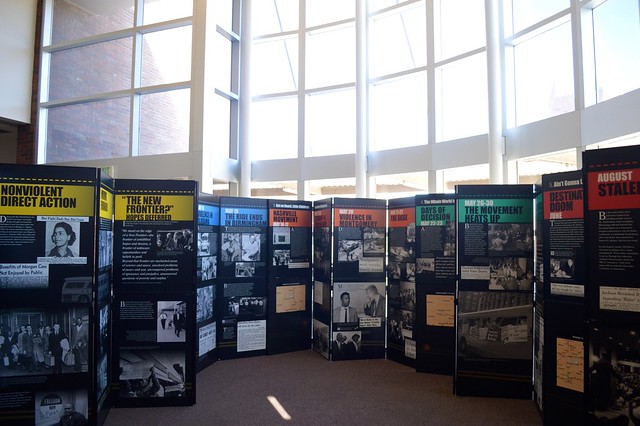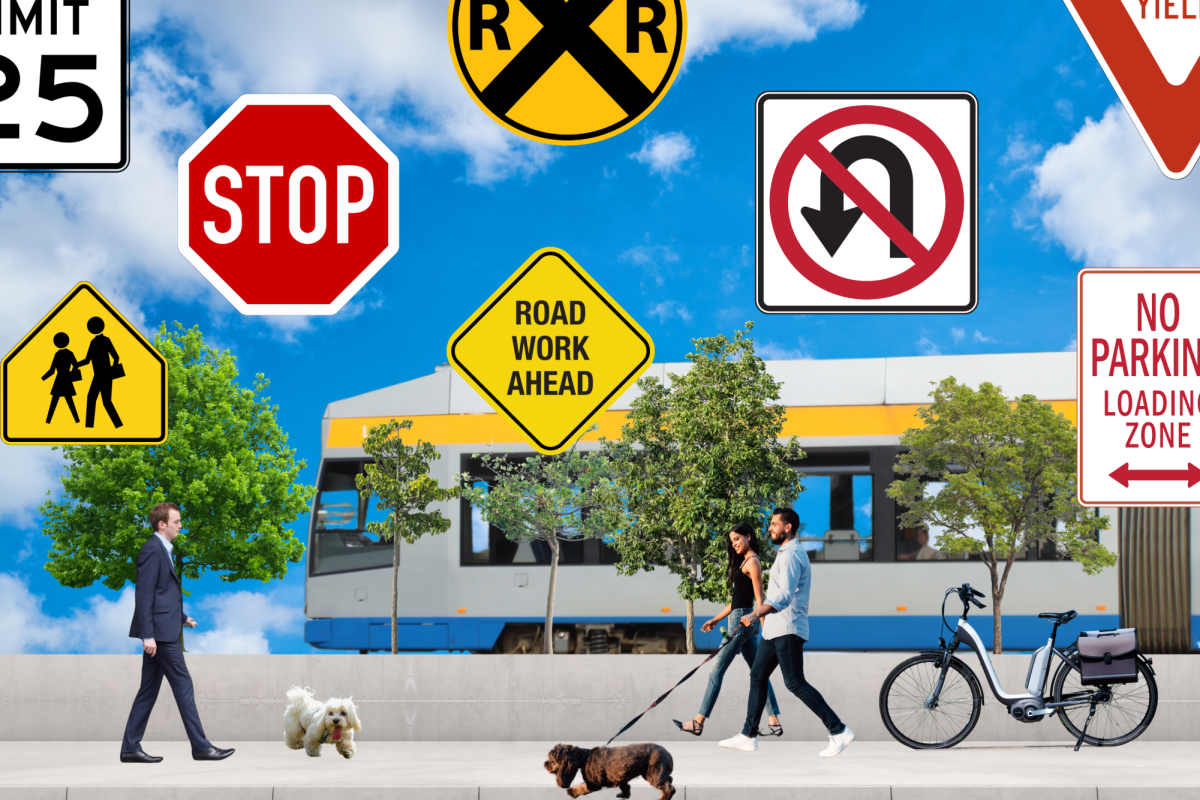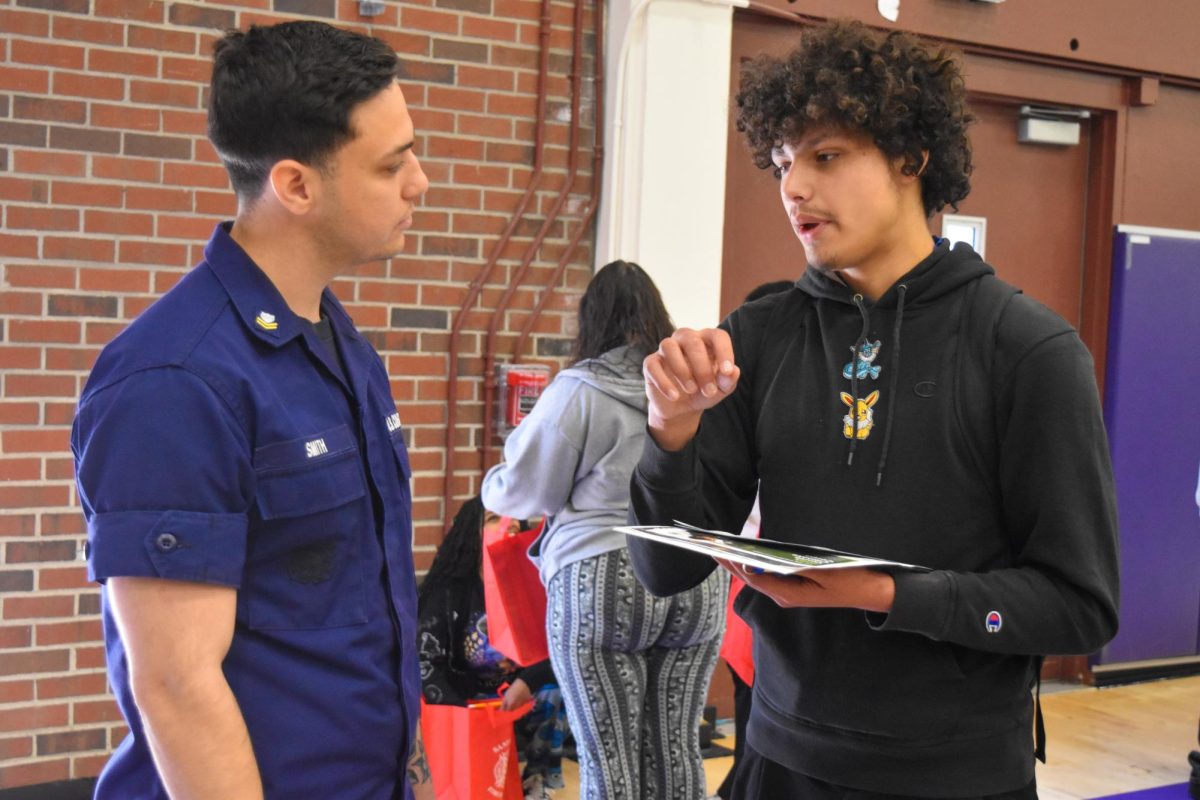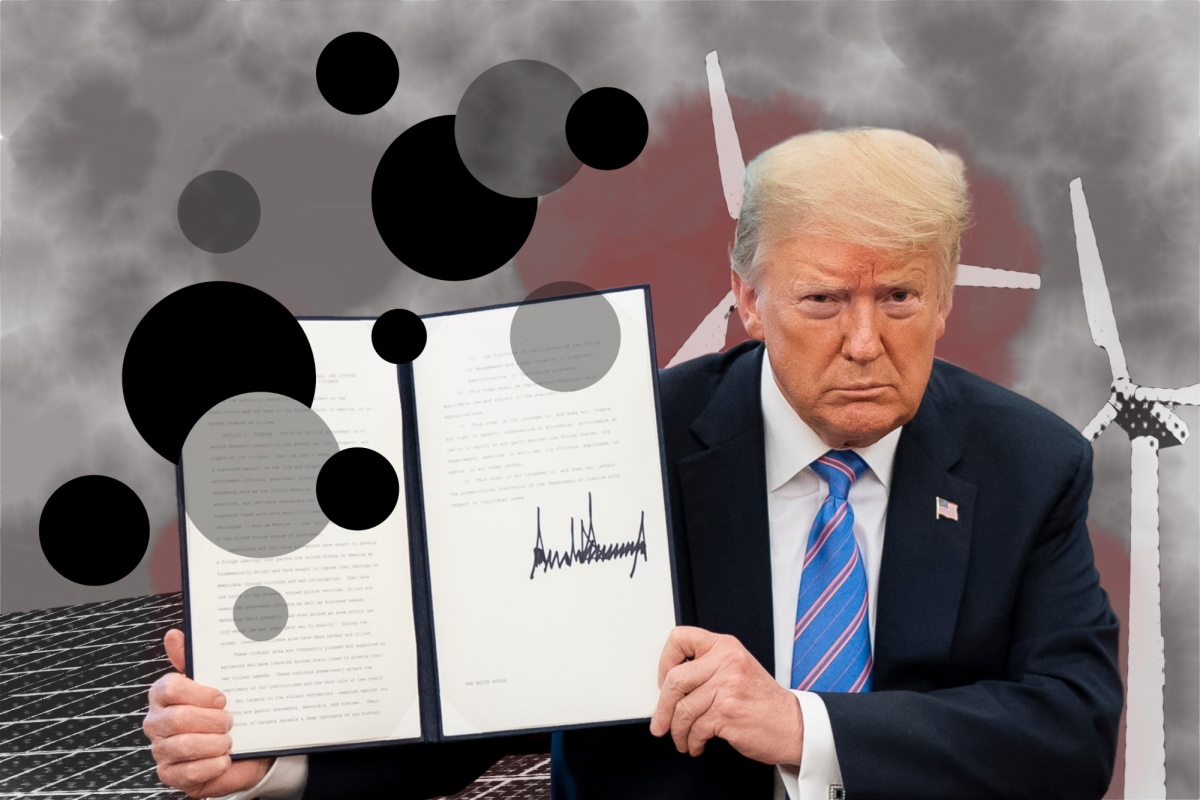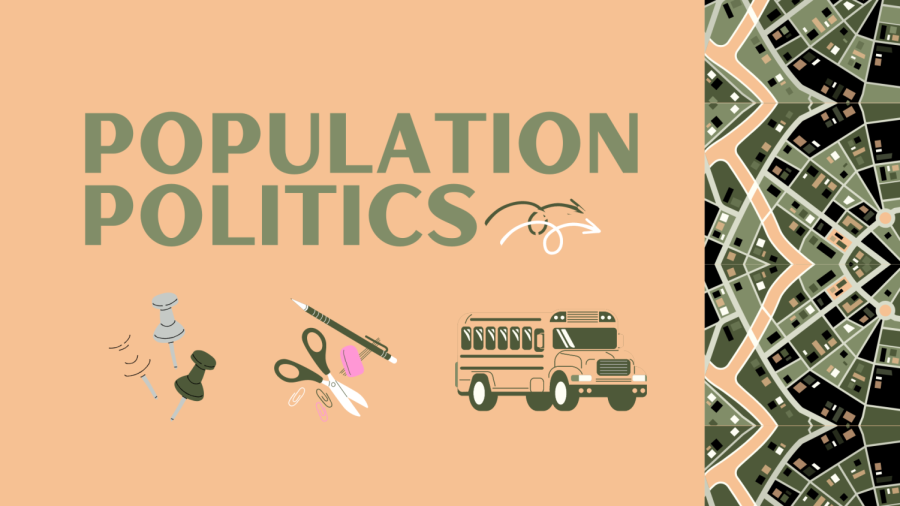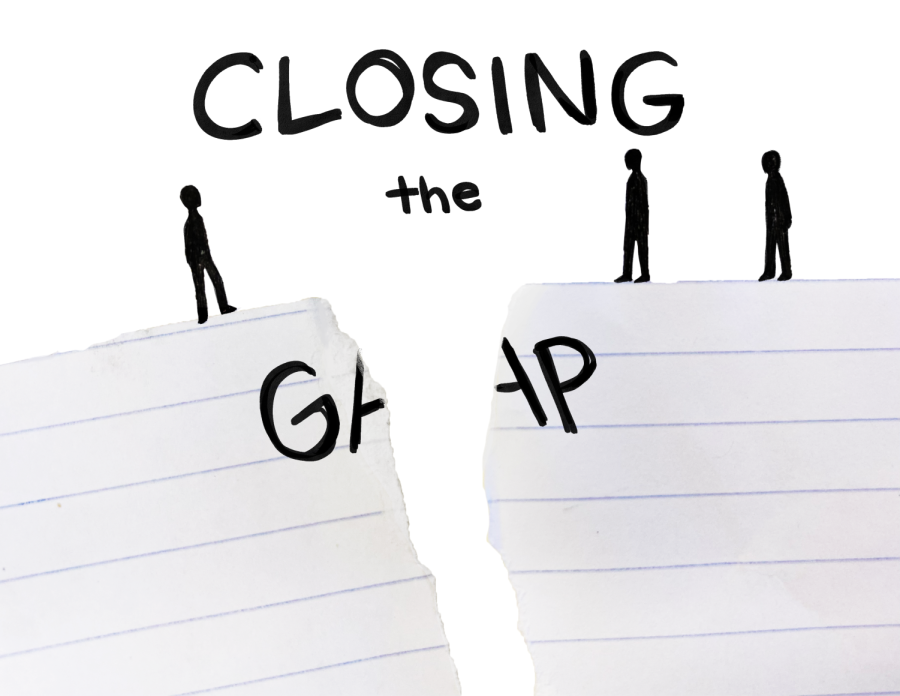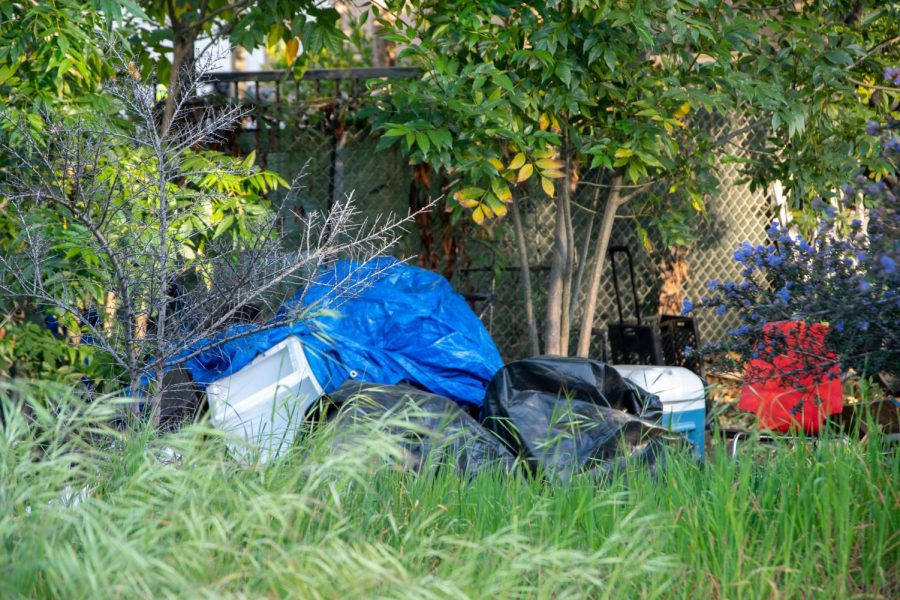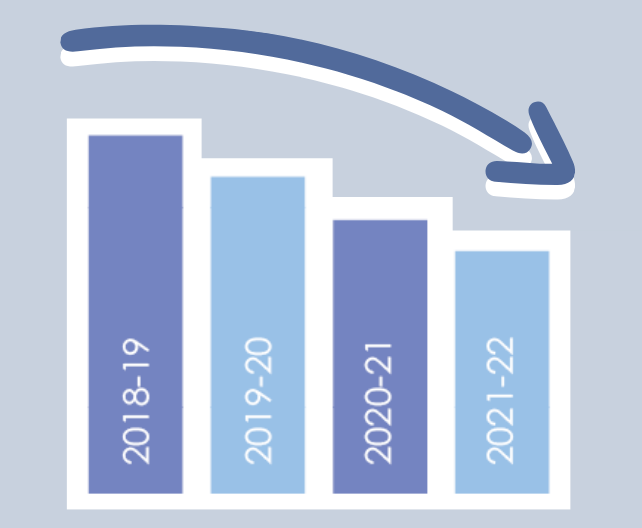
When you walk into the library, students are studying on your right. In front of you is the computer lab with more students doing work. On your left, however, crowding the corner of the library is a giant display. Behind the white walls of the folded display is the sixth traveling exhibit on American history. In the past, the MVHS library has hosted exhibits on the murder of Emmett Till, Emancipation and Questions of American freedom. This year’s topic is Freedom Riders, 1961.
When the shipments came from the Gilder Lehrman Institute of American History, MVHS librarian Laura Utile helped US History Teacher Bonnie Belshe unpack them. The display came in six big black containers and boxes that they took apart to put up the exhibit. Utile also picked out books that deal with the various topics that the exhibit displays such as the civil rights movement and black history.
Utile feels that the exhibit helps students look back and compare historical events to our current political state.
“Some of the stuff that’s happening, we are going backwards in time’,” Utile said. “It is important for students to see ‘this is what happened then, look what’s going on now. What did we do then? What did we learn from then? What can we do now to prevent us from going backwards?’”
MVHS is a school affiliated with the Gilder Lehrman Institute of American History, a nonprofit that works for the advancement of American history education. As an affiliated school, MVHS gets opportunities and benefits such as free classroom materials and access to the travelling exhibits. Belshe has been working with the institute since around 2008, and was immediately interested when she head of the Freedom Rides, 1961 eExhibit. Six years ago, this exhibit was the first travelling exhibit that the MVHS library hosted and Belshe waited until the students from those years graduated to put it back up. On the first year that the travelling exhibits were introduced to MVHS, Belshe received a grant from PTSA to void a portion of the costs of the exhibit.
This year, the Freedom Rides, 1961 exhibit features young college students fighting to desegregate public transportation in the south. From topics of violence,riots and protests, the exhibit displays a variety of stories formatted in a timeline of the students’ experiences as they travelled across the south fighting for equal rights.The exhibit also includes QR codes which students can scan to listen to podcasts from the freedom riders themselves during the civil rights era.
“I love that it kind of brings a different element of experience of what it means to study history and be the historian and [be] a little more immersive with it,” Belshe said. “And this way, if you’re in the library, whether you’re in US history or not, it still gives all our students this experience of walking through and seeing these images and then reading and hearing the voices. I love it.”


